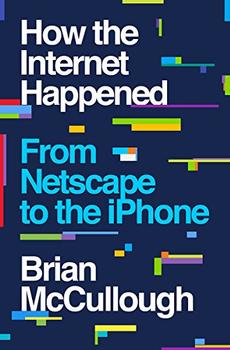Summary | Excerpt | Reviews | Beyond the book | Read-Alikes | Genres & Themes | Author Bio

Notes from the Last Days of American Spaceflight
by Margaret Lazarus DeanPractically every one of us has heard President Kennedy's historic "moon" speech delivered in his clipped Boston accent: "We choose to go to the moon in this decade and do the other things, not because they are easy, but because they are hard." The enthusiasm mirrored in that speech fueled space flight for generations, but fifty years on, we've run out of gas — or at least we're coasting on fumes. While ambition and NASA are definitely not delinked yet, we officially waved goodbye to an era of American spaceflight when the government organization launched its last space shuttle in 2011.
With Leaving Orbit, author Margaret Lazarus Dean allows the space junkie within her room to vent. A professor of English at the University of Tennessee, she models the project on the principles of New Journalism, where writers immerse themselves in the subject and document their personal feelings instead of being impassive bystanders. So it is that she decides she will attend each of the last few launches, her attendance facilitated by a friend and employee at Cape Canaveral, Omar Izquierdo.
Exerting a formidable presence over her account is what most consider to be a prime example of New Journalism: Norman Miller's Of a Fire on the Moon, a chronicle of his experiences watching a NASA launch. The big difference, Lazarus Dean wistfully reminds us, is that "sometimes it seems as though Norman Mailer's generation got to see the beginnings of things and mine has gotten the ends."
As Leaving Orbit breathlessly catalogs each shuttle launch, it also dips into the glory days. "Space historians divide the fifty-year period of American spaceflight into two eras: the "heroic era" which includes the Mercury project to put the first Americans into space, the Gemini project to expand NASA's abilities and test techniques for getting to the moon, and the Apollo project, which achieved the moon landings. Lazarus Dean points out that "the second era of American spaceflight is known as the "shuttle era," and its being named for a vehicle rather than a lofty attribute says a lot about the difference between the two, about the loss of grandiosity in the goals we set ourselves, about the ways in which NASA had been forced to repackage spaceflight as an economical and utilitarian project."
This utilitarian era delivered some memorable projects including the Hubble, but unfortunately the decision to end the program had been made — and done so quietly. Leaving Orbit effectively captures Lazarus Dean's boundless enthusiasm for her subject, as well as her anger and sadness at seeing it fade. At one point, she recalls shaking Buzz Aldrin's hand, saying: "I realize I am holding on to Buzz's hand for too long. I can't help it. I am exquisitely aware, in that moment, of the fact that this hand has been on the moon." Her geekiness is pleasantly infectious. Yet there are times when her adherence to the New Journalism format seems forced. The constant cross-references to Norman Mailer's account (especially for those of us who have not read it) verge on the point of distraction. Leaving Orbit succeeds on many levels — in its evocative descriptions of Florida's humid, mosquito-infested space coast, and by delivering a heartfelt ode to a slice of American history. However, readers (like me), expecting a more probing and wide-ranging exploration of the hows and whys of the end days of an era of American spaceflight, might be a little let down by Lazarus Dean's check-all-the-boxes approach to this journalism format.
In that same historic moon speech, President Kennedy outlined the advantages of American space exploration: "Space and related industries are generating new demands in investment and skilled personnel, and this city and this State, and this region, will share greatly in this growth." That note of optimism has been tempered by today's sobering reality, especially along Florida's Space Coast where the industry was its primary economic anchor. Case in point: After his final layoff in January 2013, Lazarus Dean's friend Omar Izquierdo now works in the badging office at Orlando airport.
It should be noted, however, that despite Lazarus Dean's pessimistic outlook about the future of American space exploration, all plans have not been scrapped, although the extent of government funding has been severely limited. Preliminary designs to launch man on Mars, as part of a multi-purpose Crew Vehicle, are being worked on. Our fantasies of flying to infinity and beyond might be on ice but they're not completely forsaken — at least not yet.
![]() This review
first ran in the June 17, 2015
issue of BookBrowse Recommends.
This review
first ran in the June 17, 2015
issue of BookBrowse Recommends.

If you liked Leaving Orbit, try these:

by Taylor Jenkins Reid
Published 2025
From the #1 New York Times bestselling author of The Seven Husbands of Evelyn Hugo and Daisy Jones & The Six comes an epic new novel set against the backdrop of the 1980s Space Shuttle program about the extraordinary lengths we go to live and love beyond our limits.

by Brian McCullough
Published 2018
Tech-guru Brian McCullough delivers a rollicking history of the internet, why it exploded, and how it changed everything.
Your guide toexceptional books
BookBrowse seeks out and recommends the best in contemporary fiction and nonfiction—books that not only engage and entertain but also deepen our understanding of ourselves and the world around us.